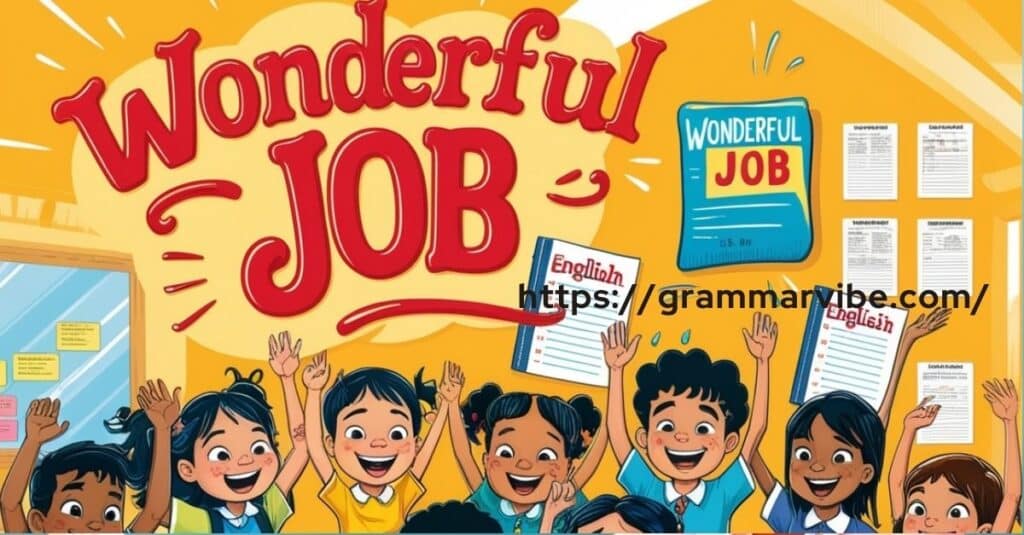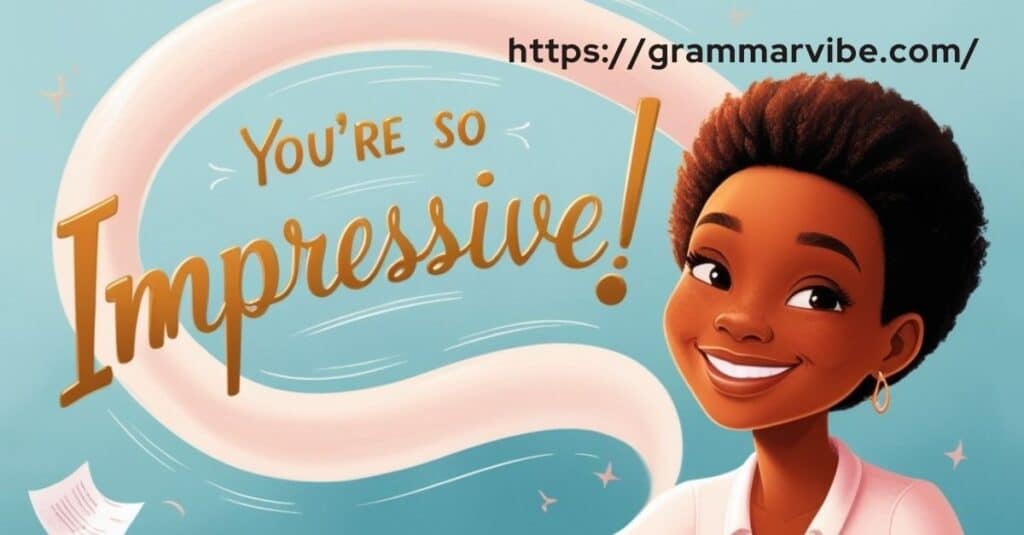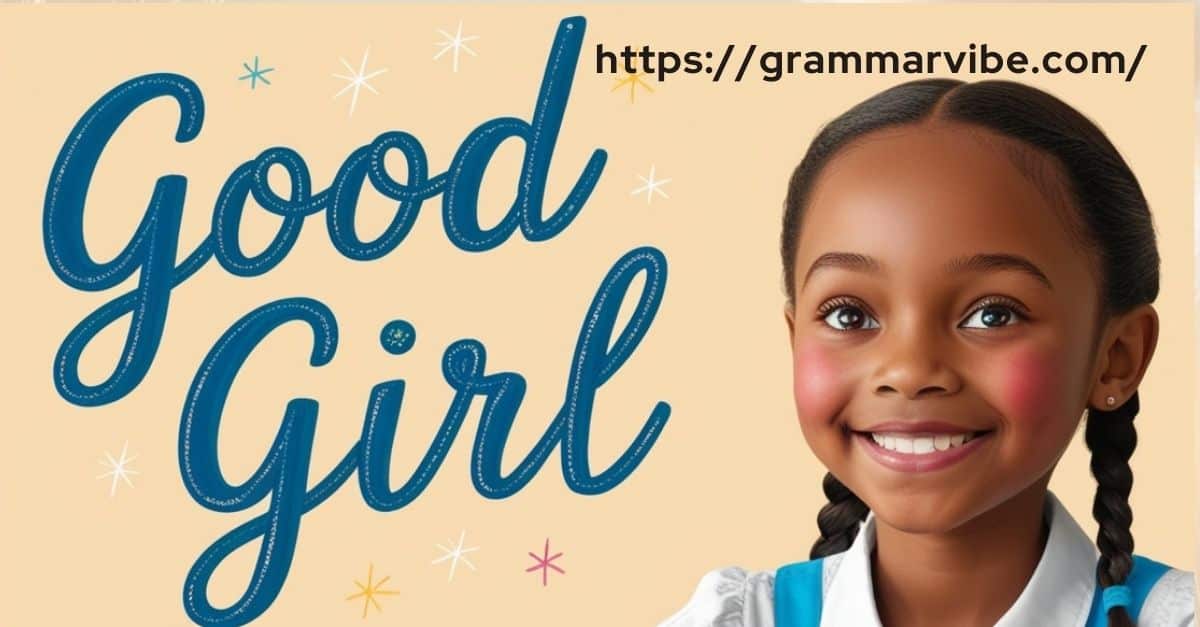Praising someone, especially in educational or professional settings, is crucial for encouraging positive behavior and reinforcing good habits. Traditionally, phrases like “good girl” are often used to compliment or reward a child for their behavior or accomplishments. However, as language evolves, many people have started to seek alternatives that are more respectful, empowering, and non-patronizing.
While “good girl” may work in certain contexts, it’s essential to understand that this phrase can be infantilizing, especially when used for adults. It can also reinforce outdated gender stereotypes. So, what are the best alternatives? We will explore 15 other ways to say “good girl” that provide positive reinforcement without the negative implications.
Why You Should Avoid Using “Good Girl”
Before diving into the alternatives, it’s important to understand why “good girl” isn’t always the best choice.
- Patronizing Tone: Using “good girl” to praise someone, especially an adult, can come off as condescending. It sounds as though the person is being treated like a child or a pet.
- Reinforcing Gender Stereotypes: The phrase can reinforce traditional gender roles, implying that women should be quiet, obedient, and compliant. It can be problematic, especially in modern conversations about empowerment.
- Infantilizing: When addressing an adult, calling someone “good girl” can feel demeaning. It can suggest that the person is only good because they comply with the expectations set by others.
With that in mind, let’s look at 15 better alternatives that are more respectful, empowering, and can be used in various situations.
1. Thank You for Being So Good!
This simple phrase is an excellent alternative to “good girl”. It focuses on acknowledging the behavior or action the person has done. It’s a warm, appreciative, and neutral way to express gratitude.
Scenario Example:
In an email to a colleague, you could say:
“Thank you for being so good about keeping the meeting on track today. Your time management really helped us stay organized.”
2. Sweetness and Sugar
If you want to add a touch of affection without sounding overly infantilizing, “sweetness and sugar” can be a fun, light-hearted term of endearment. It’s a way to praise someone in a non-sexual, non-patronizing way.
Scenario Example:
In a message to a young daughter:
“Sweetness and sugar, you did such a great job on your school project today! I’m so proud of you.”
3. Wonderful Job

This phrase shifts the focus to the outcome or effort. It’s much more specific than simply saying “good girl” and highlights that the person did something remarkable.
Scenario Example:
In an email to a student:
“Wonderful job on your research paper! Your arguments were well thought out, and the structure was impeccable.”
You might also like: 15 Other Ways to Say “Happy to See You”
4. That’s My Girl!
This phrase maintains a similar level of affection, but it’s much more about the effort than just being “good.” It can be used to emphasize a sense of pride and accomplishment.
Scenario Example:
In a text to a daughter:
“That’s my girl! You worked so hard to finish your assignment, and it shows in the quality of your work.”
5. Good Bean
A more playful and fun alternative, “good bean” conveys affection without implying any infantilization. It’s a light-hearted phrase that can be used for children and even close friends.
Scenario Example:
A message to your younger sibling:
“You’re such a good bean for helping me organize the bookshelf! Thanks for all your hard work.”
6. You’re Amazing!
Sometimes, “good girl” isn’t enough to capture how impressed you are. “You’re amazing!” is a perfect alternative that communicates admiration and recognition.
Scenario Example:
In a message to a colleague:
“You’ve been doing an outstanding job leading the project. You’re amazing at managing the team and meeting deadlines.”
Check out this: 15 Other Ways to Say “Keep Up the Good Work”
7. Way to Go!
“Way to go” is a great encouragement phrase. It conveys both approval and a sense of achievement. It’s perfect for recognizing someone’s effort or success.
Scenario Example:
To a team member after they completed a task:
“Way to go! You really nailed the presentation today. Your ideas were clear, and you kept everyone engaged!”
8. I’m Proud of You!
This phrase is about recognizing effort and acknowledging how far someone has come. It can be used in both formal and informal settings to express genuine pride.
Scenario Example:
A parent to a child:
“I’m proud of you! You’ve been working so hard on your homework, and it really shows.”
9. You Nailed It!
This phrase is often used in more casual settings, especially when someone does something particularly well. It expresses approval in a more energetic way.
Scenario Example:
A quick email to a colleague:
“You nailed it in that meeting today! Your ideas were spot on, and you really took charge of the discussion.”
More for you: 15 Other Ways to Say “As You Can See”
10. Fantastic Effort!
Praising effort is an important part of motivation, and “fantastic effort” highlights the hard work someone has put in, rather than just the result. It’s great for promoting a growth mindset.
Scenario Example:
In a chat with a student:
“Fantastic effort on your project! Even though you faced some challenges, you kept going, and your final product is excellent.”
11. You’re So Impressive!

This phrase moves away from the generic “good” and instead emphasizes that the person’s actions or behavior have left a lasting impression.
Scenario Example:
To a young professional:
“You really handled that client meeting with confidence. You’re so impressive when it comes to managing tough situations.”
12. Awesome Job!
A straightforward, energetic alternative to “good girl”, “awesome job” is great for praising both actions and results. It feels genuine and conveys enthusiasm.
Scenario Example:
In a quick text to a friend:
“Awesome job on the group presentation! You really brought some great insights to the table.”
13. You’re On Fire!
This one is used to show someone is performing exceptionally well—on fire implies that they are excelling at everything they do.
Scenario Example:
In a congratulatory email:
“Your results this quarter are impressive. You’re on fire! Keep up the amazing work, and let’s aim for even more growth.”
14. That’s Exactly Right!
Instead of just saying “good girl,” consider using “That’s exactly right!” This is especially useful when correcting or guiding someone, and it focuses on precision and correctness.
Scenario Example:
In an email to a team member:
“That’s exactly right! Your analysis of the data is spot on. Keep up the great work!”
For your interest: 15 Other Ways to Say “Just to Confirm”
15. You’re Doing Fantastic!
This alternative is often used to offer encouragement and acknowledge progress. It’s great for keeping someone motivated, especially during long-term tasks or goals.
Scenario Example:
A teacher to a student:
“You’re doing fantastic in this class. Your grades are improving, and you’re showing great effort in your assignments.”
Table: Alternative Phrases for “Good Girl”
| Alternative Phrase | Context/Situation |
|---|---|
| Thank you for being so good | Polite recognition of good behavior |
| Sweetness and sugar | Light-hearted and affectionate |
| Wonderful job | Acknowledging excellence in performance |
| That’s my girl | Showing pride in a girl’s achievements |
| Good bean | Playful and affectionate compliment |
| You’re amazing | Expressing admiration for someone’s abilities |
| Way to go | Encouraging and recognizing effort |
| I’m proud of you | Acknowledging hard work and achievements |
| You nailed it | Praising someone for excellent performance |
| Fantastic effort | Focusing on the hard work put into a task |
| You’re so impressive | Recognizing someone’s exceptional skills |
| Awesome job | Enthusiastic recognition of a job well done |
| You’re on fire | Recognizing peak performance or success |
| That’s exactly right | Acknowledging correctness and accuracy |
| You’re doing fantastic | Encouraging progress and improvement |
Conclusion
Choosing better ways to praise people, especially instead of saying “good girl”, helps create a more respectful and empowering environment. Using phrases that focus on effort, creativity, and achievement encourages positive growth and boosts confidence.
By switching to these alternatives, we not only avoid outdated stereotypes but also show appreciation in a more meaningful way. Encouragement and recognition should always celebrate the person’s abilities and hard work, empowering them to keep improving.

Kyren Paul is an experienced blogger and the creative mind behind “Grammar Vibe.” With a passion for the nuances of English grammar, he brings clarity and insight to everyday language topics, making grammar accessible and engaging for readers of all levels.











Leave a Comment